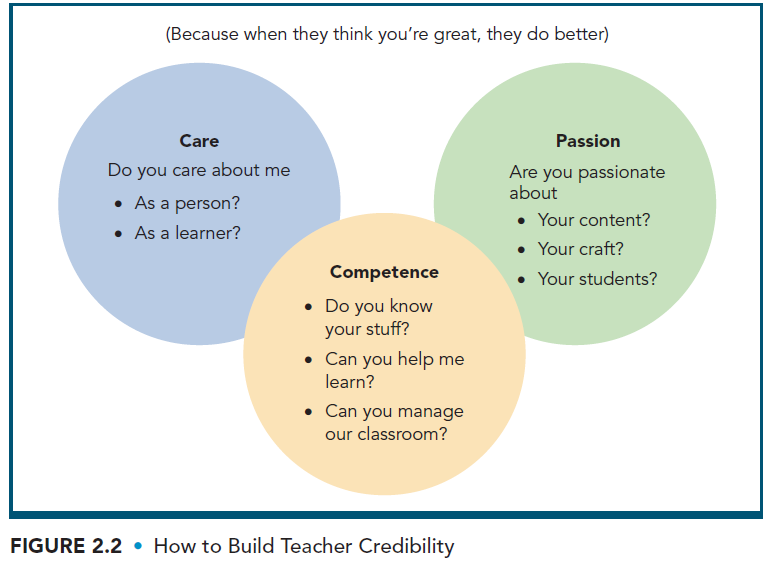Starting out at a new school is hard, whether you've got no years of experience or ten. You can bring instructional expertise, nuclear passion, and tomes of knowledge, but when you start at a new school, there's a big thing you lack: credibility.
Is this person a good teacher? That's the question everyone's asking, whether consciously or not. We're natural judgers. In some cases, it's fine for you to be a person of principle who doesn't care what people think about you — actually, that's probably really healthy. But in teaching, you do need people to think you're a good teacher. (As I explain a bit more in this article, teacher credibility has one of the highest effect sizes on John Hattie's epic Visible Learning list, which you can read more about here.)
So they're trying to figure out if you're credible. That's why people treat you weirdly when you're starting out at a new place. And the bad news is that it's not super effective to go around trying to explicitly convince them of your credibility. You don't go to the staff meeting ready to share the five AMAZING things that kids did in your room today, and aren't these kids SO great, OH MY GOSH.
No. That doesn't work. That is bothersome.
The good news is that credibility can actually be boiled down pretty succinctly. Students (and coworkers and bosses) determine a teacher's credibility based on CCP: care, competence, and passion. And there's a fourth letter — R for Repair — that I'll touch on at the end, too.
CARE: Do you care about students personally? Do you care about them as learners? Don't miss either one of those. When I was a new teacher, I was huge on caring about the kids personally, but I was terrible at demonstrating my concern that they learn as much as possible about reading, writing, and thinking in my class. To my students, I'm sure that they found me a nice person, even a good person — but I'm also sure that many of them did not find me a particularly good teacher. We've got to be good teachers in their eyes if we want them to learn as much as possible.
COMPETENCE: Do you know your stuff? Your content? Your craft? How to manage a class? How to stay organized? (I'm still working on that one.) There aren't many shortcuts to competence, but here's one: every day, go in to work determined to learn something new. If you're currently bad at your job (I was), then I've got good news: you'll fail today, and that failure is ripe ground for learning. If you let it be. Be warmly critical of yourself.
PASSION: My colleague Polly Johnson refers to the three loves all great teachers have to have, and I first came across this idea from a book on teaching math (when it comes to professional reading, I'm rangy). You've got to cultivate in yourself (and demonstrate to others) that you love 1) your students, 2) your content, and 3) your challenging craft of linking those first two loves together in holy learning matrimony.
So, there it is: care, competence, and passion — the CCP of teacher credibility.

What about when we mess up?
CCP helps you focus on what you can do proactively to build credibility with your students. But some years ago, researchers found that there's a particular form of misbehavior that can tank your credibility no matter how good you are: offensiveness. When we offend our students, whether intentionally or not, researchers find that our credibility takes a deadly hit.
One implication of this is that we're wise to be careful with our humor. Another is that we need to keep an eye out for student behaviors that shift from positive to negative, and act like detectives when this happens to try to determine if we may have accidentally offended the student. If we have, we pull the student in the hallway for a special kind of moment of genuine connection: an earnest apology.
Next time, I'll share one clear and simple strategy for becoming more credible quickly.
Leave a Reply